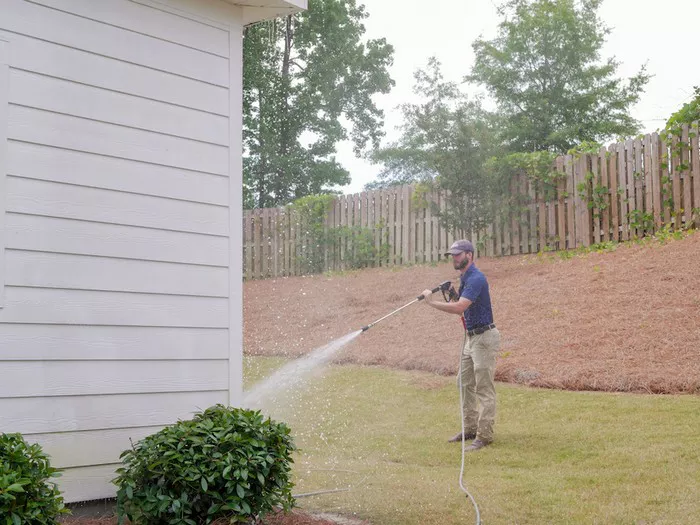Pressure washers are powerful tools, often employed for cleaning outdoor surfaces like driveways, decks, and siding. But what about using them in less than ideal weather conditions, like rain? Many wonder if it’s safe or effective to operate a pressure washer in such conditions. In this comprehensive guide, we’ll delve into the nuances of using pressure washers in the rain, exploring their safety, efficacy, advantages, disadvantages, costs, and more.
Understanding Pressure Washers:
Before we delve into the specifics of using pressure washers in the rain, let’s briefly discuss what pressure washers are and how they work. A pressure washer is a mechanical device that utilizes high-pressure water spray to remove dirt, grime, mold, and other contaminants from surfaces. They come in various types, including electric, gas-powered, and even portable models. These machines typically feature adjustable nozzles or tips to control the pressure of the water spray.
Can You Use a Pressure Washer in the Rain?
While it’s technically possible to use a pressure washer in the rain, it’s generally not recommended. Operating a pressure washer in wet conditions can pose safety hazards and may affect the effectiveness of the cleaning process.
Safety Concerns:
Using a pressure washer in the rain increases the risk of electric shock. Water and electricity don’t mix well, and using an electric pressure washer outdoors in wet conditions can be extremely dangerous. Additionally, rain can make surfaces slippery, increasing the likelihood of slips and falls while operating the equipment.
Effectiveness:
Rain can dilute the cleaning solution and interfere with the pressure of the water spray, reducing the effectiveness of the cleaning process. Water from the rain may also mix with the detergent or cleaning solution, altering its chemical composition and potentially rendering it less effective.
Advantages and Disadvantages:
While there may be situations where using a pressure washer in the rain is unavoidable, it’s essential to weigh the advantages and disadvantages.
Advantages:
Can help clean surfaces quickly in case of emergencies.
May be necessary for certain time-sensitive cleaning tasks.
Disadvantages:
Increased risk of electric shock and other safety hazards.
Reduced effectiveness of cleaning due to diluted solutions and interference from rainwater.
Potential damage to the pressure washer or its components.
Cost Considerations:
Using a pressure washer in the rain may incur additional costs, such as potential damage to the equipment or increased electricity usage if using an electric model. Additionally, if the cleaning process is less effective due to wet conditions, you may end up using more water and cleaning solution, resulting in higher expenses.
Conclusion:
While it’s technically possible to use a pressure washer in the rain, it’s generally not recommended due to safety concerns and reduced effectiveness. If you must use a pressure washer in wet conditions, take extra precautions to ensure your safety and consider the potential impact on the cleaning process. In most cases, it’s best to wait for dry weather to achieve optimal results.
FAQ Section:
Q1. Is it safe to use a gas-powered pressure washer in the rain?
A1: Using a gas-powered pressure washer in the rain poses fewer electrical safety risks compared to electric models. However, there are still other safety concerns to consider, such as slippery surfaces and potential damage to the equipment. It’s best to exercise caution and avoid using any pressure washer in heavy rain or thunderstorms.
Q2. Can I use a pressure washer under a shelter during light rain?
A2: Operating a pressure washer under a shelter during light rain may seem like a safer option, but it’s still not recommended. Water runoff can still pose electrical hazards, and the effectiveness of the cleaning process may still be compromised. It’s best to wait for dry weather to ensure optimal safety and results.
Q3. How can I protect myself from electric shock when using a pressure washer in wet conditions?
A3: To reduce the risk of electric shock when using a pressure washer in wet conditions, consider using a ground fault circuit interrupter (GFCI) and wearing appropriate protective gear, such as rubber gloves and boots. Additionally, avoid touching electrical components or outlets with wet hands, and never operate the pressure washer while standing in water.

